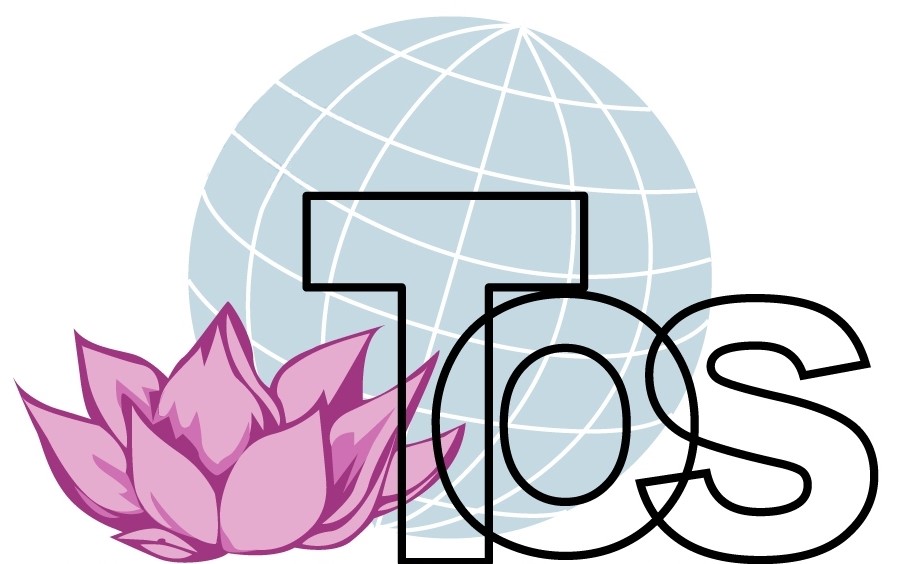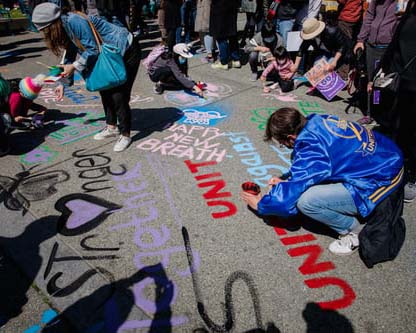Speaking of Peace
photo by by Jason Leung from Unsplash
by Ananya Sri Ram Rajan
Did you know that according to visionofhumanity.org, violence costs the world $14 trillion dollars annually? It is difficult to comprehend such a sum of money except to know that it is large and that such a sum could benefit a number of poor people around the world. Such funds could create schools, build sustainable infrastructure, enhance healthcare, and provide countries with the wealth needed for disaster relief.
In reality, when looking at the world’s problems with regard to violence, it isn’t the world that is the problem. It’s the people. Among the population of people, there is not one population that is the culprit, it’s all of us. Violence lives in every one of us. Even Gandhi admitted that he had little patience for his illiterate wife whom it has been said he abused. Being aware that we are violent, truly aware, can create a change in us, as Krishnamurti states. The question is, can we accept that we are violent?
Violence can be subtle. While it is defined as a force that causes or is intended to cause harm—physically, psychologically, emotionally or verbally—it can also be passive. Often, we can be violent without even thinking that the action we do is such. A simple example is when we make a judgement about another person. Or when we impose our opinion on another. Or when we refuse to follow a law because it inconveniences us, such as speeding because we are late.
While many organizations state that they promote peace, the language used can sometimes be viewed as violent and judgmental. We may not interpret it as such because we have become immune to it. For example, the word “evil” is often used in peace work (and granted there have been and are actions by governments and people that warrant such a word), the question arises whether there can be peace when we view something as evil. If an action is considered evil, the people doing the action are often considered evil as well. We tend to lump together the action and the people.
Peace in its true form is unifying. We cannot state that we are working to promote peace while vilifying those who vilify. Such action only creates more disharmony and a lack of understanding. When we see another as different from ourselves, unity is lost. This is true for everyone. Our judgment about the person, object, or cause interferes with our ability to view anything objectively or to even work from a place of peace and compassion.
In an interview between Fr. John Dear with the late Representative John Lewis, the Civil Rights leader, Fr. John asks:
As you know so well, part of the challenge of nonviolence is to respond nonviolently to personal assault, but to keep on insisting on the truth of justice and peace. Jesus epitomized this and Gandhi taught us this. How did you respond personally to these police who were beating you and all the people who threatened you during those years in the struggle? How did you respond? What was it like for you yourself to deal with this violence nonviolently?
Representative Lewis responds:
Well, I believe in the philosophy and discipline of nonviolence. I accepted it not simply as a technique or as a tactic, but as a way of life, a way of living. You have to arrive at the point as believers in the Christian faith that in every human being there is a spark of divinity. Every human personality is something sacred, something special. We don’t have a right as another person, or as a nation, to destroy that spark of divinity, that spark of humanity, that is made and created in the image of God.
I saw Sheriff Clark in Selma or Bull Connor in Birmingham or George Wallace the governor of Alabama as victims of the system. We were not out to destroy these men. We were out to destroy a vicious and evil system. So, our attack had to be directed against customs, traditions, unjust laws–but not against these individuals. (www.johndear.org)
Rep. Lewis was a Christian who lived his faith. But the words of Rep. Lewis could have easily come from a student of theosophy as the message is the same: “We don’t have the right as another person, or as a nation, to destroy that spark of divinity.” Perhaps this is one place we can start with our work in non-violence and peace. His words are similar to the end of “O Hidden Life”: “May each who feels themselves as one with Thee, know they are therefore One with every other.”
As Rep. Lewis points out, non-violence is a way of living. It is a daily discipline of watching our thoughts, the words we use, the way we express ourselves, and the actions we take. It is seeing that everyone we encounter, pleasant or not, has something to teach us about ourselves. As he says, “Every human personality is something sacred, something special.”

